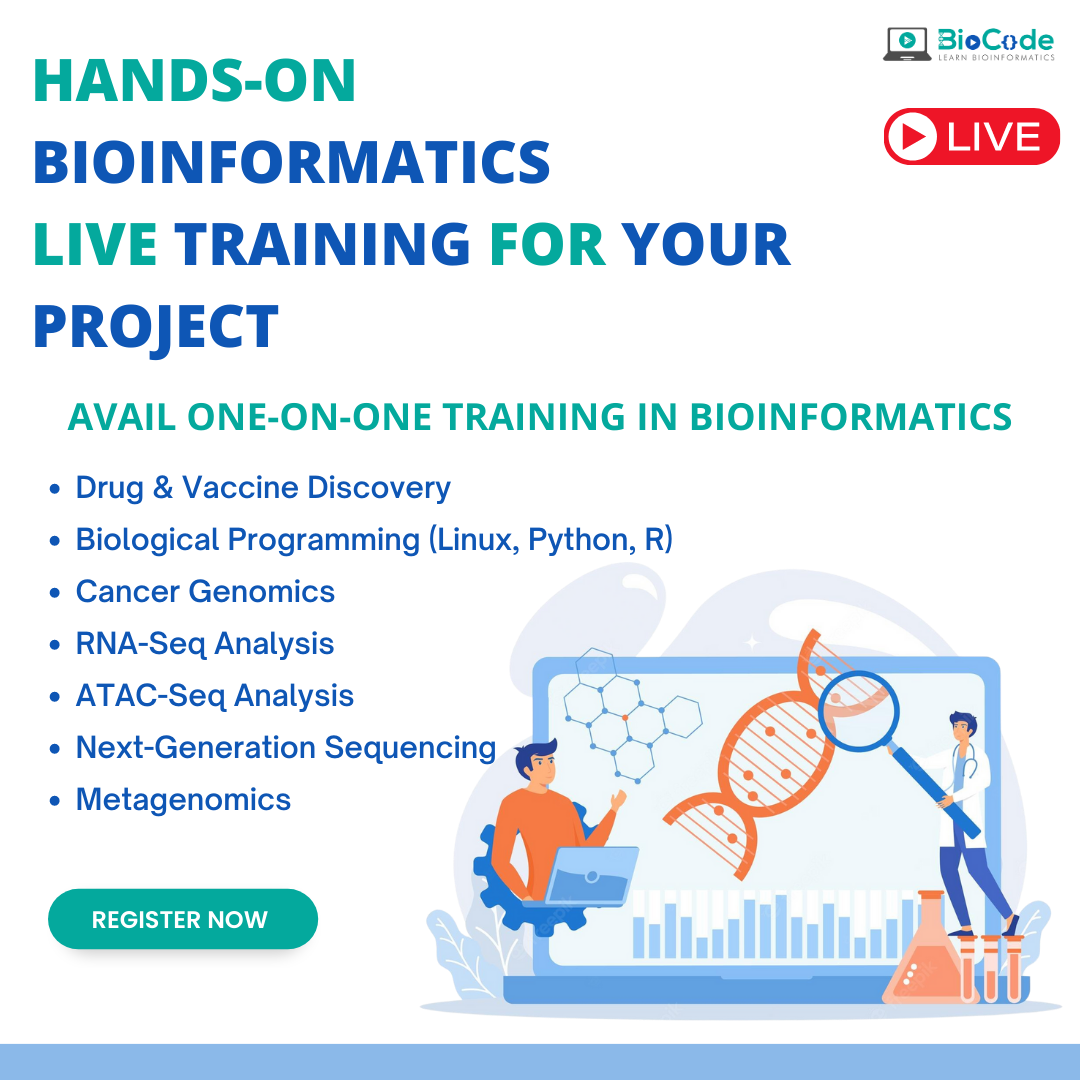The 30-Second Trick For Bioinformatics Tutor
The 30-Second Trick For Bioinformatics Tutor
Blog Article
More About Bioinformatics Tutor
Table of ContentsThe Facts About Bioinformatics Tutor UncoveredHow Bioinformatics Tutor can Save You Time, Stress, and Money.10 Simple Techniques For Bioinformatics TutorThe smart Trick of Bioinformatics Tutor That Nobody is Talking AboutUnknown Facts About Bioinformatics Tutor
Initial project growth is fairly taxing, as it includes cautious planning of the subject, structuring of deliverables, and consideration of the skills and experience levels of individuals. When a project has been plainly specified and executed, it has the potential to be recycled in future sessions with only small revisions to mirror updates in the area or accommodate distinctions in participant histories. This makes project-based discovering a sustainable and efficient teaching strategy in the long run, particularly in swiftly progressing disciplines like bioinformatics.To make certain connection and reproducibility of knowing, providing shared laboratory notebooks-- either physical or electronic-- is essential. These note pads offer as collaborative logs where pupils can videotape their progression, code, methodologies, and results throughout the training course. Not just do they enhance learning by motivating paperwork and reflection, yet they also function as post-course reference products that individuals can speak with in future research study or academic jobs.
Mentors play a necessary function in the success of project-based courses. Mentors additionally act as function versions and influence pupils to continue seeking careers in computational biology and related areas.
Not known Facts About Bioinformatics Tutor
An additional trick facet of the learning procedure is supplying individuals the possibility to present their work to others, particularly to a target market beyond their prompt job group. Last presentations or mini-conferences enable trainees to express their findings, get useful comments, and gain self-confidence in communicating clinical web content. This discussion component is typically a favored amongst pupils, as it confirms their initiatives and highlights the real-world significance of their work.
Each version of the program was fine-tuned based on participant feedback and evolving best practices in rearing. Bioinformatics Tutor. These adjustments guaranteed that the core goals-- hands-on knowing, cooperation, and applied analytic-- stayed undamaged while increasing the deepness and breadth of subjects covered.
A notable visualization that recorded participant sentiment was a word cloud generated from responses to the 2014 end-of-course study. Individuals were asked, "What was the most effective part of the course?" and their responses were assembled into a graphical word cloud. In this depiction, the dimension of each word suggests how frequently it was discussed, with words like "hands-on," "cooperation," "real-life problems," "support," and "interactive" showing up most plainly. This aesthetic responses strengthened the program's focus on experiential discovering and coach support.
The contributions of people such as Rustici, G., Orchard, S., Cowley, A., and Twells, R., together with other members of the EBI user-training-working group, were critical in fine-tuning useful link the course structure and material. Their insights aided form a comprehensive and adaptable version that might be adjusted to numerous institutional and local contexts.
What Does Bioinformatics Tutor Mean?

Jones, Rasmussen, and Moffitt (1997) additionally promoted for interdisciplinary learning via collective project work, noting its ability to replicate expert settings and prepare pupils for future scholastic or market functions. In a detailed testimonial, Thomas (2000) analyzed several studies on PBL and ended that pupils not only perform well academically however additionally develop a much deeper understanding of the subject issue and boosted team effort skills.
In the context of bioinformatics education and learning, ingenious techniques like classroom video games and simulation-based training have also been used. For example, Schneider and Jimenez (2013) introduced the usage of interactive games to instruct biological data assimilation, enabling students to realize complicated concepts with experiential learning. This type of gamification matches the hands-on understanding highlighted in project-based programs by presenting a component of fun and competition, which can further enhance involvement.
Returning to the course reviewed below, the lessons go to this site gained from the implementation of project-based discovering in a bioinformatics setting have broader implications for various other STEM areas. The approach stresses not simply technical effectiveness, however additionally communication, partnership, and important thinking-- abilities that are significantly valued in both academia and sector.
The Ultimate Guide To Bioinformatics Tutor
The scalability of the course layout likewise makes it a sensible model for various other institutions. With ideal modification based upon neighborhood demands, available resources, and individual profiles, the structure can be reproduced or adjusted for use in various other clinical domains. Additionally, the addition of organized mentorship and assessment techniques aids make sure consistent quality and measurable learning outcomes.

In verdict, project-based understanding in bioinformatics supplies an effective strategy to training complex, interdisciplinary web content in a way that is both obtainable and intellectually boosting. By emphasizing cooperation, practical application, and important questions, such initiatives not just enhance specific learning yet additionally add to the growing of a new generation of innovative and skilled researchers.
Bioinformatics Tutor for Dummies

Another key aspect of the discovering process is giving individuals the possibility to provide their work to others, specifically to an audience beyond their immediate task team.In the broader educational literature, project-based understanding (PBL) has actually been extensively researched and validated as a reliable technique for promoting deep understanding, crucial thinking, and transferable abilities. Adderley et al. (1975) emphasized the value of project techniques in greater education, noting that they advertise active learning and freedom. Schneider and Jimenez (2013) presented the usage of interactive games to educate organic data combination, allowing trainees to realize complex concepts through experiential discovering.
Report this page